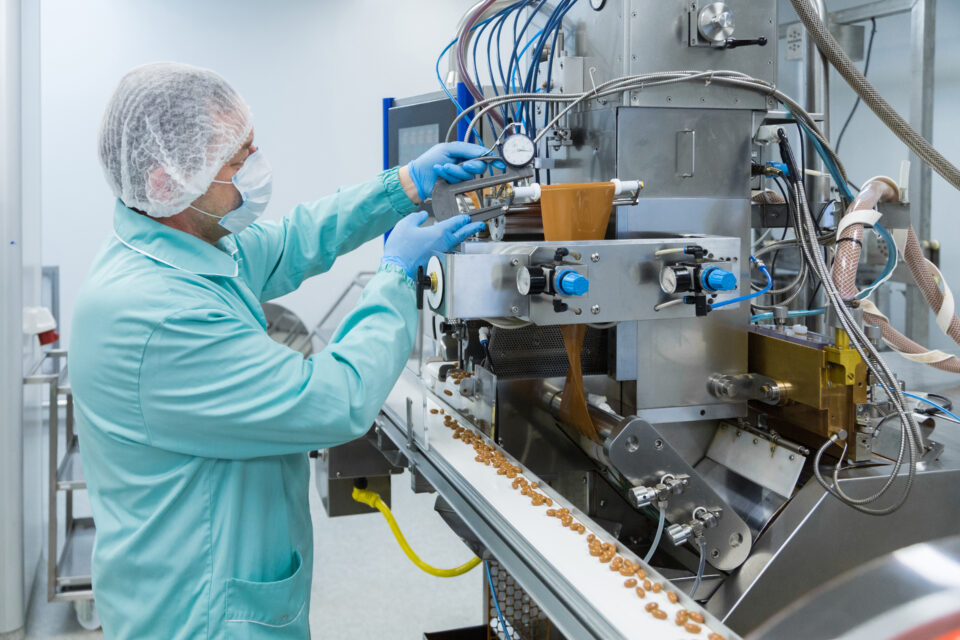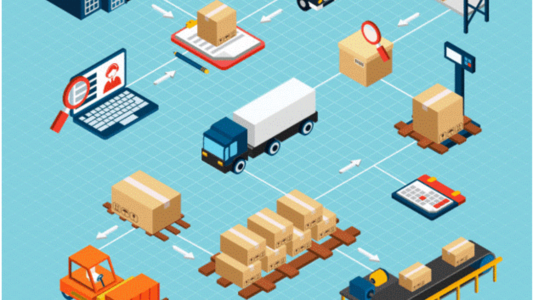The pharmaceutical industry has always been a pioneer in the adoption of new technologies, and artificial intelligence (AI) is no exception.

In recent years, AI has revolutionized the production of medicines, allowing faster, more efficient, precise and profitable production while preserving or even improving the quality of the products.
What process is followed for the implementation of AI in the pharmaceutical industry?
Stages
It is important to mention that this is an iterative process that requires close collaboration between AI experts and pharmaceutical industry professionals to achieve optimal results and can be divided into:
- Problem Identification: The first step to implement AI in the pharmaceutical industry is to identify the problems that AI can help solve. These may include optimizing production processes, identifying new drugs, cost reduction, and quality control.
- Data collection and preparation: Once we identify the problems, it is necessary to collect and prepare the necessary data to train and feed the AI algorithms. The data may include clinical trial information, laboratory test results, medical records, and supply chain data.
- Selection of AI tools: The next step consists of selecting the most appropriate AI tools to address the identified problems. These tools may include machine learning algorithms, neural networks, natural language processing, and data analysis.
- Model training: After selecting the AI tools, it is necessary to train the models using the data collected and prepared in the previous step. Training AI models involves adjusting parameters and variables so that the model can perform the desired tasks.
- Model validation and verification: Once models have been trained, they must be validated and verified to ensure that they are accurate and effective. This involves comparing the results of the models with historical data and evaluating their ability to predict and prescribe.
- Implementation and monitoring: Finally, once the models have been validated and verified, they can be implemented in the pharmaceutical industry. It is important to monitor the models to ensure they are working effectively and to make adjustments and improvements if necessary.

One of the greatest successes of AI in the pharmaceutical industry is in the production and distribution of medicines. By applying tools to optimize production processes, management times are reduced and there is a decrease in associated costs.
AI has also improved supply chain management, allowing for better planning and inventory management.
On the other hand AI has also impacted the research and discovery of new drugs. Through the application of machine learning algorithms and data analysis. With these sequencing, advances have been achieved in areas such as the identification of new therapeutic targets for complex diseases such as diabetes, cancer, and heart disease.
In addition, AI has improved the selection of candidates for clinical trials, allowing greater precision in the identification of patients who can obtain greater benefit from certain types of treatment.
Challenges
Despite the benefits that AI offers, there are also challenges and concerns associated with its use, such as:
- Data security.
- Ethics in decision making.
- The need for specialized personnel.
- The complexity of the systems.
Therefore, it is essential to take preventive and regulatory measures to guarantee patient safety at all times.

In conclusion, AI is having a significant impact on the pharmaceutical industry, enabling advances in key areas such as drug research and production. As technology continues to evolve, AI is likely to continue transforming the way medicines are developed and distributed around the world. Reason why it is necessary to continue working to ensure its ethical and safe use.
At baobab soluciones we have a wide service catalog of customized solutions that include everything from data collection and analysis to the development and implementation of solutions, as well as training and ongoing support to ensure the success of your company. Contact us now and start enjoying the benefits that AI can bring to your business!
REFERENCES
- Gómez-Castro, C., García-Magariño, I., & García-Sánchez, F. (2021). The Use of Artificial Intelligence in Drug Discovery and Clinical Trials. En Proceedings of the 2nd International Conference on Advances in Artificial Intelligence and Machine Learning (pp. 84-94). Springer.
- Qureshi, H. A., & Syed, J. A. (2021). An Overview of AI and Its Applications in the Pharmaceutical Industry. In Applications of Artificial Intelligence (pp. 75-95). Springer.
- TLW®. (2023). How AI is Revolutionizing Pharmaceutical Manufacturing. Retrieved on April 28, 2023, from: https://www.tlw.com/blog/how-ai-is-revolutionizing-pharmaceutical-manufacturing



